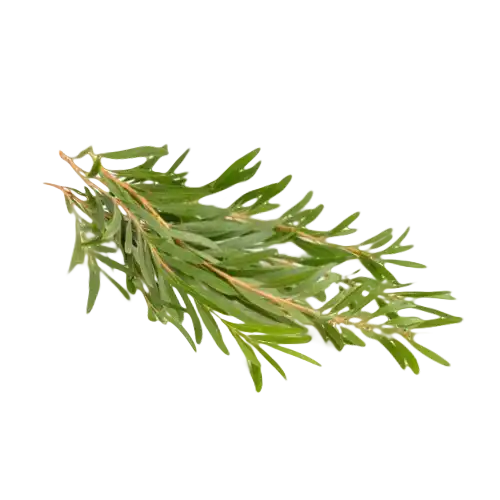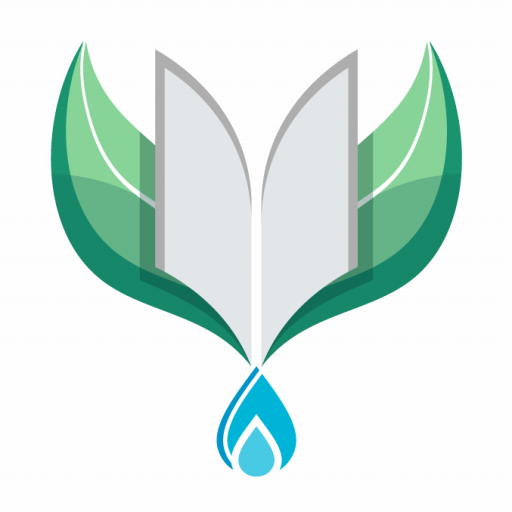Tea tree essential oil
Melaleuca alternifolia
Tea tree essential oil, derived from the leaves of the Australian native Melaleuca alternifolia, has earned a well-deserved place as one of the most versatile and beneficial essential oils in the world. Its rich history, coupled with its numerous medicinal and cosmetic applications, makes it an essential staple in natural health and wellness practices. This powerful oil has been a cornerstone of traditional medicine for centuries, especially among the indigenous Bundjalung people of eastern Australia, who first discovered its impressive healing properties. Unlike many other essential oils that are valued primarily for their fragrance, tea tree oil stands out for its therapeutic potency. The oil contains over 100 different components, with terpinen-4-ol being its primary active compound responsible for most of its antimicrobial activity. Whether it’s combating skin infections, reducing inflammation, or purifying the air, tea tree oil provides a natural alternative to many synthetic treatments and commercial products.
Historical Background of Tea Tree Essential Oil
The indigenous Bundjalung people of eastern Australia have long valued tea trees for their healing properties. They traditionally crushed the leaves to treat wounds and respiratory ailments, laying the groundwork for the oil’s modern therapeutic applications.

Scent description
Herbaceous, greenish, leathery
Usage
Inhaled | topically | internally
Effects, use cases
Disinfectant | Antiparasitic | Fungicides | Diarrhea | Cuts, scrapes | Sore throat | Acne, pimples | Tartar | Gingivitis | Colds | Nail fungus | Skin fungus | Bacteria
Disclaimer: always check the manufacturer's recommendation before using any essential oils internally or topically!
Tea tree oil (Melaleuca) is not suitable for replacing the effects of other traditional bactericidal and virucidal preparations and agents in any dilution. Tea tree oil is therefore not suitable for exclusive hand and surface disinfection, or for replacing antibiotic and other drug treatment of diseases and infections.
Warning, safety cautions
Essential oils are not intended to diagnose, treat, or prevent any disease, nor do they replace medications or therapies prescribed by a physician. They are not medicinal products and do not qualify as drugs. Based on experience, essential oils may have complementary therapeutic effects. If you are unsure about how an essential oil might affect you or your child, consult your general practitioner and/or a qualified aromatherapist. Before using any new essential oil (especially internally or directly on the skin), perform a patch test.
Use and health effects of tea tree essential oil
Tea tree oil’s antibacterial, antifungal, and anti-inflammatory properties make it a versatile remedy for various skin conditions.
Acne Treatment
Its ability to combat acne-causing bacteria and reduce inflammation makes it a popular natural alternative for clearer skin.
Fungal Infections
Effective against conditions like athlete’s foot and nail fungus, tea tree oil inhibits fungal growth, promoting healthier skin and nails.
Dandruff Control
Incorporating tea tree oil into scalp treatments can alleviate dandruff by reducing yeast overgrowth and soothing irritation.
How to use tea tree essential oil?
Cuts, scrapes
Apply 1 drop to the wound to disinfect and clean the wound (minor injuries).
Digestive problems
Take 1 drop in an empty capsule as a treatment or rub with a carrier oil on the abdominal area.
Ringworm, nail fungus
Massage 1-2 drops into the skin over the fungal area or apply 1 drop to the fungal nail.
Acne
Apply 1 drop directly to the affected area.
Tartar, gingivitis
Drop 1 drop of tea tree oil in a glass of water and gargle with it.
Colds
Take 1 drop in an empty capsule daily as a treatment. Massage into your throat or diffuse 2-3 drops.
Dandruff, head lice
Add 1 drop to your shampoo and wash your hair with it or rub directly into your hair and rinse.
Sore throat
Drop 1 drop of tea tree oil in a glass of water and gargle with it.
Disclaimer: always check the manufacturer's recommendation before using any essential oils internally or topically!
Warning, safety cautions
Essential oils are not intended to diagnose, treat, or prevent any disease, nor do they replace medications or therapies prescribed by a physician. They are not medicinal products and do not qualify as drugs. Based on experience, essential oils may have complementary therapeutic effects. If you are unsure about how an essential oil might affect you or your child, consult your general practitioner and/or a qualified aromatherapist. Before using any new essential oil (especially internally or directly on the skin), perform a patch test.
Tea tree essential oil – spirituality and soul
In spiritual practices, tea tree oil is valued for its purifying properties. It’s often used in aromatherapy to cleanse the mind and spirit, promoting clarity and grounding. Its fresh, medicinal scent is believed to dispel negative energies, making it a staple in various cleansing rituals.
Recommended manufacturers of Tea tree essential oil
dōTERRA
This essential oil is currently available from dōTERRA.
For further information, visit the dōTERRA website.
Young Living
Young Living is currently selling this essential oil.
For further information, visit the Young Living website.
Contact info
Author:
Roseware Kft. - Réka Rózsáné Illés
Affiliate programs
I am open to be the part of affiliate programs with essential oil manufacturers and sellers. Contact me!
Copyright info
Photos and texts on this website are subjects of copyright - the owner of the copyright is Roseware Kft. - Réka Rózsáné Illés. Do not use any of these without permission.
